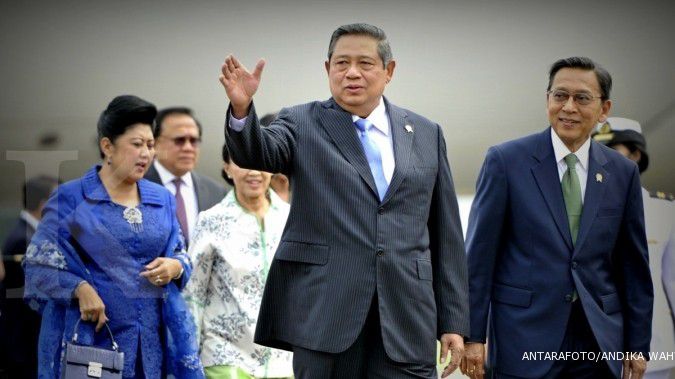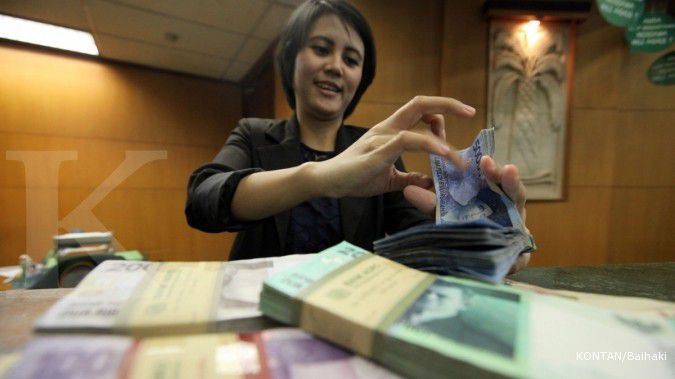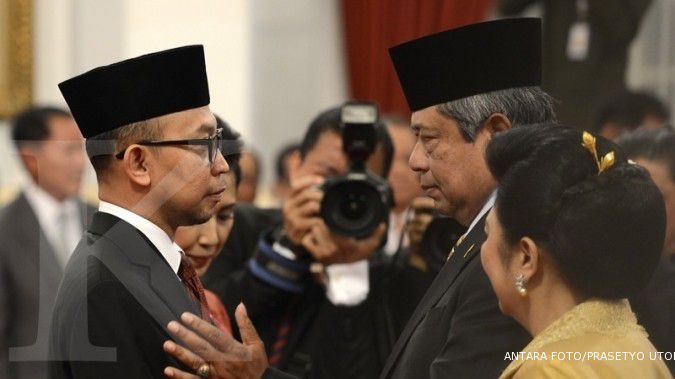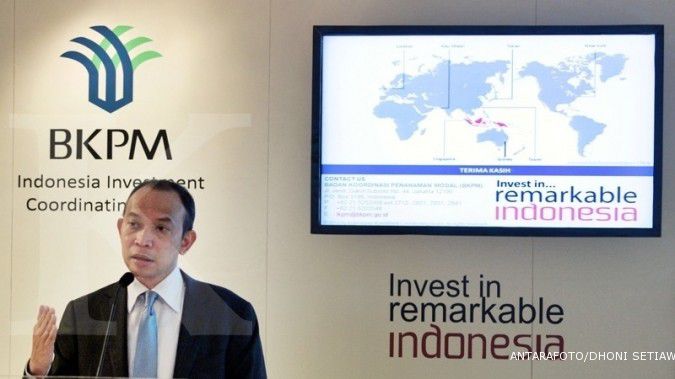JAKARTA. On the day of his inauguration, Finance Minister Chatib Basri said that his priority would be fiscal prudence while helping ministries with poor budget planning.
Indonesia needed to review fuel subsidies burdening the state budget, especially since the subsidies benefitted the rich and the middle class the most, Chatib said on Tuesday after receiving his mandate from Coordinating Economic Minister Hatta Rajasa, who was Chatib’s immediate successor on an interim basis.
Ballooning fuel subsidies have been blamed for widening budget deficits that will top 2.48 percent of gross domestic product this year, according to estimates, higher than initial assumptions of 1.65 percent.
“At a time when the global economy continues to be overshadowed by uncertainties as in the present, we must guard our macroeconomic stability by maintaining our fiscal deficit at a prudent level,” he told reporters at the Finance Ministry.
Despite fiscal tightening, there would still be room for fiscal incentives for investors, as Indonesia needed more investment to maintain an annual growth rate above 6 percent, Chatib, who previously led the Investment Coordinating Board, said. “I will prioritize investments that can generate jobs and bring prosperity to the people.”
“It’s not going to be easy, maintaining fiscal discipline at a time when new incentive schemes are needed to maintain our investment growth,” the finance minister added.
Chatib said that he wanted to improve the image of the ministry, which often comes into opposition with other ministries due to its prudence, or as some critics would have it, ministerial stinginess, in disbursing funds.
Under his leadership, the ministry would aid ministries with difficulties in disbursing funds due to poor budget planning, Chatib said. “We should not become the ‘stopper’, but instead becoming their ‘helper’.”
The ministries that Chatib most likely referred to were the Education and Culture Ministry, the Religious Affairs Ministry and the Defense Ministry, whose budget requests have frequently been denied due to lack of clarity in planning.
Chatib, who holds a doctorate in economics from the Australian National University (ANU), is no stranger in the Finance Ministry, having served as a special advisory staff member to Sri Mulyani Indrawati, who served as finance minister from 2006 to 2010.
Hatta, who was appointed as interim finance minister after Agus Martowardojo was ousted by the President Susilo Bambang Yudhoyono and sent to the central bank, was upbeat on Chatib’s inauguration. “I am sure that Pak Chatib will not need time to adapt and can just hit the ground running.”
The new minister’s first task will be to lobby lawmakers during their deliberations on the revised 2013 state budget (APBN-P). Chatib will be expected to defend the changes to the government’s macroeconomic assumptions, notably slowing growth rates, the widening budget deficit, increasing inflation, lower oil production and the weakening rupiah.
Another job waiting for the finance minister will be representing the government during deliberations on the 2014 state budget, when he is likely to face pressure from lawmakers looking to use state funds for next year’s elections, a situation that investors have said creates uncertainty.
The current draft state budget for 2014 said that the nation’s economy would expand at an annual rate between 6.4 and 6.9 percent, well below the rate specified by the government’s medium-term development program of 7 to 7.7 percent, with prevailing economic uncertainties predicted to persist and to continue pushing down exports. (Satria Sambijantoro/The Jakarta Post)
Chatib vows prudence, better planning
May 22, 2013, 11.54 AM
/2013/05/21/1987812426p.jpg)
ILUSTRASI. Money Heist versi Korea Selatan, drama Korea terbaru arahan sutradara dan penulis naskah berbakat.
Reporter: Dyah Megasari
| Editor:
Latest News
-
February 07, 2026, 04.59 PM
Indonesian Comedian Summoned by Police Over Netflix Show
-
February 07, 2026, 05.57 AM
GLOBAL MARKETS-Stocks, Bitcoin Rally, Regaining Some Lost Ground with Precious Metals
-
February 06, 2026, 07.58 AM
Indonesian Markets Face More Pressure after Moody's Cuts Outlook
-
February 05, 2026, 07.19 PM
Moody's Cuts Indonesia's Sovereign Rating Outlook to Negative
-
February 05, 2026, 02.43 PM
Indonesia Posts Fastest Economic Growth Rate in Three Years
-
February 04, 2026, 04.38 PM
Indonesia's Tax Revenues Jump in January, Finance Minister Says
-
February 04, 2026, 03.34 PM
AUD 1.6 Trillion Australian Pension Funds Ready to Pour into Indonesia
-
February 04, 2026, 02.13 PM
Indonesian Miners Halt Spot Coal Exports Over Proposal to Cut Output
-
February 04, 2026, 12.39 PM
Emerging Asia Stocks Waver as AI Selloff Bites, Seoul Hits Record High














